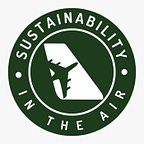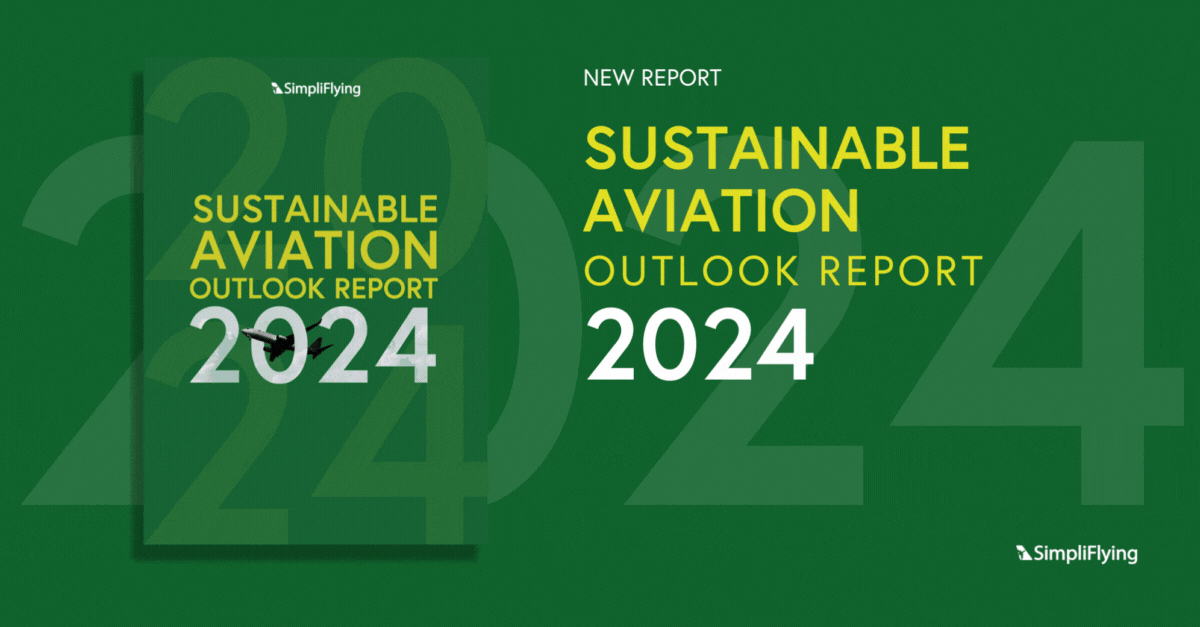“There’s a lot of noise when it comes to sustainable aviation. Where is the signal? What exactly is happening?”
As the world reels from the catastrophic consequences of climate change, the question of what the aviation industry can do about sustainability is rife with controversy, speculation, and divided opinions.
In today's special episode, SimpliFlying’s CEO Shashank Nigam, COO Shubhodeep Pal, and Head of Sustainability Dirk Singer discuss the key findings of our first annual Sustainable Aviation Outlook Report, which is packed with data from leading airlines.
Here are the key highlights of the conversation:
Why sustainable aviation matters for the future of the planet (2:50)
The current state of the industry and its fragmented approach to sustainability (12:55)
Team structures in airlines and the need for Chief Sustainability Officers (19:15)
The importance of budgets and investing in sustainability initiatives (23:40)
The investment gap in climate tech and key challenges for startups (29:00)
The importance of engaging with climate groups, NGOs, and activists (33:54)
The current state of SAF and its challenges (39:38)
Key takeaways and the need for industry-wide collaboration (46:00)
Keep reading for a quick overview of the episode.
The importance of sustainable aviation for the planet
The aviation industry plays a crucial role in addressing the climate crisis, as it currently contributes to ~3% of global emissions, with projections indicating a potential increase to 25% by 2050.
Shubhodeep stresses the importance of understanding the long-term impact of climate change, pointing out that the “climate is actually measured over at least a period of 30 years” and that “long-term changes are happening to the Earth’s climate, and it’s the long-term damage that people are talking about.”
The severity of the climate crisis, underscored by the rising number of wildfires and the melting polar ice caps, makes it necessary for the aviation sector to work towards net-zero emissions and ensure a sustainable future for the planet.
The necessity of unprecedented collaboration and standardisation
The report emphasises the critical need for unprecedented collaboration and standardisation within the aviation industry to achieve net-zero emissions by 2050.
The current fragmented approach to sustainability, with airlines adopting different strategies, measurement methods, and baselines, hinders progress and makes it difficult to assess the industry’s overall performance.
To effectively decarbonise, airlines must work together to establish common standards, share best practices, and develop a unified roadmap for sustainable aviation. Industry bodies like ICAO and IATA have a crucial role to play in facilitating this collaboration and driving the adoption of standardised approaches.
Evolving team structures and the need for further action
Our Sustainable Aviation Outlook Report highlights the varying approaches airlines are taking to address sustainability challenges.
While many airlines are investing in sustainability teams, the structure and composition of these teams differ significantly. The majority of airlines surveyed have hybrid teams, combining dedicated sustainability professionals with staff from other functions.
However, only about half of the airlines have a Chief Sustainability Officer (CSO) in place, despite the industry’s commitment to the ICAO and IATA mandate for net-zero emissions by 2050.
Shubhodeep emphasises the importance of skill development and budgets, stating, “It’s good to have a 10-person team. But do they have the mandate? Do they have a sizeable budget to invest in sustainability initiatives? That’s a question that we want to ask.”
To drive effective change, airlines must prioritise the appointment of CSOs and develop comprehensive sustainability strategies.
Engaging with climate groups and NGOs
There is a growing willingness among airlines to engage with climate groups, NGOs, and activists. This open dialogue is essential for the industry to gain an outside perspective on their actions and move forward in a constructive manner.
By fostering collaboration and understanding between airlines and environmental stakeholders, the industry can work towards common goals and build trust among consumers and the wider public.
Tackling the SAF conundrum
Sustainable aviation fuel (SAF) is widely considered the most viable pathway to decarbonisation, with most net-zero roadmaps suggesting that SAF will contribute 50-70% of emissions reductions by 2050.
However, the industry faces significant challenges in terms of SAF availability, affordability, and the need for mandates to drive adoption. Shubhodeep highlights that “in 2023, only 0.57% of the entire industry’s jet fuel usage was SAF,” emphasising the need for increased uptake. The report highlights the importance of incentives and mandates to encourage airlines to procure SAF and accelerate the growth of the SAF industry.
Airlines must work together to build economies of scale, increase investment, and reduce prices through joint offtake agreements and shared infrastructure investments.
Investing in available levers today
While long-term solutions like electric and hydrogen aircraft are still in development, airlines must not overlook the importance of investing in currently available levers to reduce emissions.
Operational efficiencies, eco-piloting measures, electrified ground equipment, recycling, and the circular economy can contribute up to 10% of carbon reduction goals by 2050.
Shubhodeep urges airlines to take action, stating, “airlines have to resist the urge to invest only in perfect solutions that may take forever to arrive. They have to take the levers that are available today and do the best they can with them.”
Airlines should also explore solutions offered by aircraft manufacturers and technology providers that can significantly reduce fuel consumption, he adds. By investing in these readily available measures, airlines can make meaningful progress towards their sustainability goals while waiting for breakthrough technologies to mature.
‘Sustainability in the Air’ is the world’s leading podcast dedicated to sustainable aviation. Through in-depth conversations with top aviation leaders, we break through the clutter and provide a clear roadmap for a net-zero future.
















